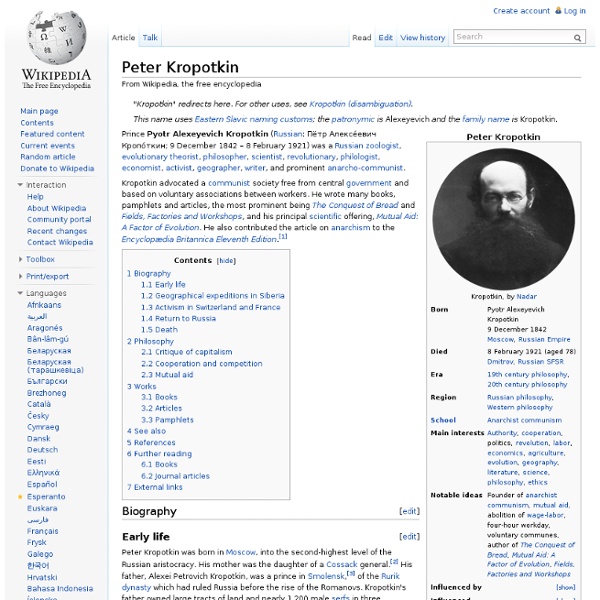Peter Kropotkin

Global Resistance and Rising Anarchism - The New Politics of the 21st Century
Devon Douglas-BowersActivist Post A number of occurrences have taken place over the past 13 years since the rise of the new millennium; we have seen and are seeing the rise of popular movements all over the world and a resistance to the forces of imperialism, capitalism, and subjugation, from the most recent Arab Spring to the world’s largest coordinated anti-war protest in history with the global protests against the Iraq War[1], to the rise of the Occupy Movement and the rise of indigenous resistance as can be seen in the Idle No More campaign of Canada’s First Nations population. What we seeing around the world is a global resistance that, in some cases, has anarchist undercurrents. We are witnessing the new politics of the 21st century. While many movements such as the Occupy Movement and the Arab Spring had anarchists and anarchist influences within them, anarchism as a political philosophy is quite misunderstood and some time should be taken to understand it. Endnotes: 4: Charles A.
What Geniuses Come To Believe
Submitted by Paul Rosenberg via FreemansPerspective.com, It recently struck me that the people we think of as “geniuses” tend to arrive, over time, at surprisingly similar sets of conclusions. It further struck me that a simple list of such thoughts might be of value to my readers. So, here is a list pulled from my quotes file and presented without commentary. Enjoy: Albert Einstein Unthinking respect for authority is the greatest enemy of truth.Nothing will end war unless the people themselves refuse to go to war.Never do anything against conscience, even if the state demands it.The world is in greater peril from those who tolerate or encourage evil than from those who actually commit it.Small is the number of them that see with their own eyes and feel with their own hearts. Rod Serling The ultimate obscenity is not caring, not doing something about what you feel, not feeling. Arthur Schopenhauer We forfeit three-fourths of ourselves in order to be like other people. Thomas Jefferson Allan Bloom
Related:
Related:



